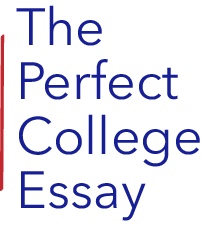High school is a time for exploration, growth, and laying the academic foundation for the future. One of the smartest moves students can make during these years is to take challenging courses—Advanced Placement (AP), International Baccalaureate (IB), honors, or dual-enrollment classes. While these courses often require more time, effort, and commitment, the payoff—particularly when it comes to college admissions—is significant.
1. College Admissions Officers Look for Rigor
When colleges review applications, they don’t just look at GPA—they look at the context behind those grades. One of the most important factors in that evaluation is course rigor. Admissions officers want to see that students have challenged themselves academically within the options available at their school. A student who has taken a full load of AP, IB, or honors classes (especially in core subjects like English, math, science, history, and foreign language) demonstrates a high level of motivation and readiness for college-level work.
In fact, many admissions offices explicitly say they would rather see a B in an advanced class than an A in a regular-level course. Why? Because challenging classes show colleges that a student is willing to stretch themselves and take academic risks—exactly the kind of mindset that thrives in a college environment.
2. Academic Rigor Boosts Competitiveness
In competitive college admissions, standing out matters. When a college receives tens of thousands of applications, academic rigor becomes a key differentiator. Two students may have similar GPAs, but if one took mostly standard-level classes while the other tackled AP Calculus, IB Biology, and Honors English, the latter will likely be viewed more favorably. Colleges aim to admit students who will succeed in their programs, and one of the strongest indicators of future success is a record of strong performance in difficult high school courses.
Moreover, selective schools often recalculate GPAs to account for course difficulty, giving more weight to rigorous courses. That means a strong performance in advanced classes can positively impact a student’s academic index—a number used by admissions offices to compare applicants from different schools.
3. Better Preparation = Better Performance in College
Challenging high school courses are designed to mimic the pace and depth of college classes. Students who take them build strong study habits, time management skills, and academic resilience. This preparation leads to better performance in college and a smoother transition from high school. Admissions officers know this, which is why rigor is a key consideration in evaluating applicants’ academic readiness.
4. Opportunities for College Credit and Placement
Advanced coursework often offers the opportunity to earn college credit or advanced standing. Scoring well on AP or IB exams can allow students to bypass introductory college courses, saving both time and money. Dual-enrollment classes can also count for credit at many universities. This is not just a financial benefit—it also frees students up to explore more advanced classes, double majors, or study abroad programs once they’re in college.
5. It Shows Passion and Intellectual Curiosity
Taking challenging courses in areas of interest signals to colleges that a student is genuinely curious and invested in learning. For example, a student who wants to study engineering and takes AP Physics and Calculus is sending a clear message about their interests and commitment. This kind of academic alignment strengthens an application by showing not only ability, but purpose.
Conclusion
Enrolling in challenging courses during high school is one of the best ways for students to stand out in the college admissions process. It signals academic readiness, motivation, and a willingness to take initiative—all traits that colleges value deeply. Beyond the application, these courses also help students discover their interests, build critical thinking skills, and prepare for the demands of college life. In short, challenging yourself now opens doors later. For students aiming to attend competitive colleges—or simply to make the most of their education—rigor is not just important; it’s essential.



